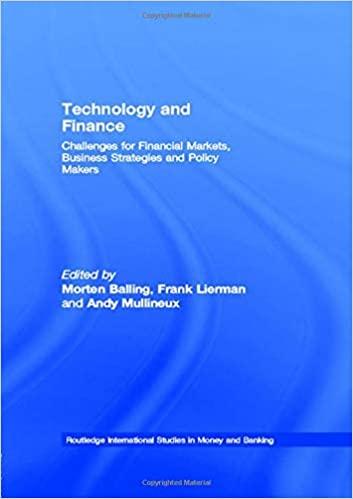Vitality Vancouver Inc. (VVI) has recently raised debt capital through long-term financing. The bond indenture includes issuing 8% coupon bonds on the market that are
Vitality Vancouver Inc. (VVI) has recently raised debt capital through long-term financing. The bond indenture includes issuing 8% coupon bonds on the market that are selling at $989, pay interest semi-annually, and mature in fifteen years. The company would like to issue additional $1 million in new fifteen-year bonds. VVI has another bond issue outstanding that pays a 7.5% coupon and matures in 14 years. The bond has a par value of $1,000 and a market price of $942.90. Interest is paid semiannually. The company evaluates the potential of issuing a third bond that pays an annual coupon of $35, has a face value of $1,000, matures in seven years, and has a yield to maturity of 8%. As a result of the recent financing, the CFO of the company is concerned about protective covenants that could hamper the future risk-taking ability of the firm. In particular, the bondholders reserve the right to force the repayment of the bonds prior to the maturity. VVI is also experiencing rapid growth. Dividends are expected to grow at 20% per year during the next three years, 10% over the following year, and then 4% per year indefinitely. The required return on this stock is 10%. The company is also considering the prospect to issue some preferred stock to alter the capital structure of the firm. It is however unsure about the main characteristics of the preferred stock which could cause some dilution to the existing capital structure due to similarity with another instrument. The CFO is also preparing for a meeting with the Board of Directors next week. While giving the final touches to the quarterly results, he realizes the board is likely to focus on the potential of dividend distribution to various classes of shareholders. The CFO has additionally prepared some notes regarding the voting structure of those classes of stocks. The company plans to improve the profitability and stock price related ratios because of the recent changes in the capital structure.
3. What should be the price of the third bond being considered for an issue?
Step by Step Solution
There are 3 Steps involved in it
Step: 1

See step-by-step solutions with expert insights and AI powered tools for academic success
Step: 2

Step: 3

Ace Your Homework with AI
Get the answers you need in no time with our AI-driven, step-by-step assistance
Get Started


